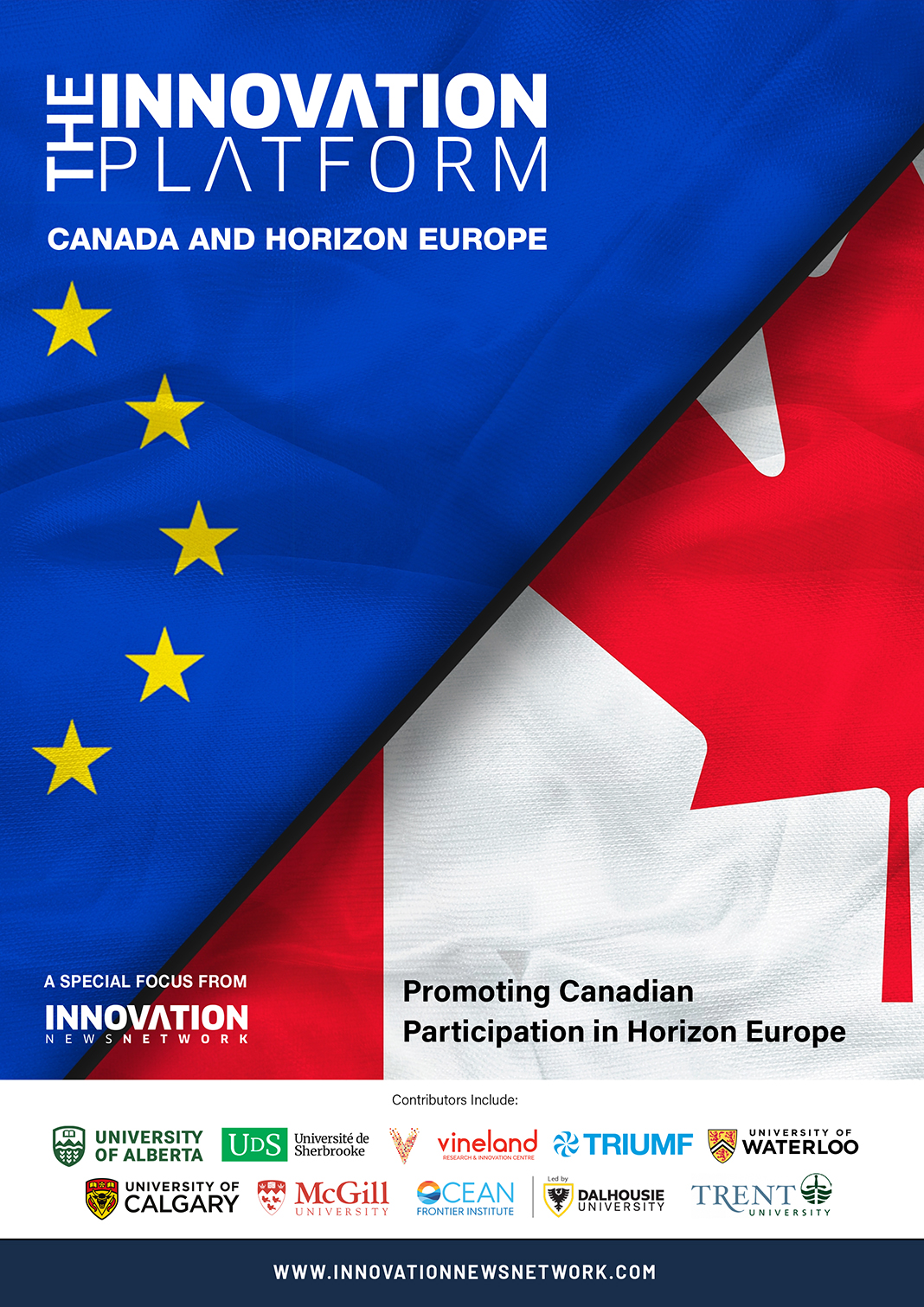This Special Focus eBook delves into Canada’s involvement in the world’s foremost research initiative, spotlighting key projects supported by funding from Horizon Europe.
Canada’s involvement in Horizon Europe marks a significant step forward for scientific collaboration. In November 2023, Canada secured an association agreement, allowing researchers to compete for funding under Pillar II, the programme’s main collaborative arm. This is a first for Canada, offering deeper integration than previous engagements with EU research initiatives.
Speaking at the Canada-EU Summit, European Commission President Ursula emphasised the significance of Canada joining the programme: “We warmly welcome Canada into the Horizon Europe family, and we eagerly anticipate the innovative breakthroughs and transformative discoveries that will emerge from our joint projects.
“Together, we will chart new frontiers, push the boundaries of knowledge, and build a more resilient and prosperous world for generations to come.”
Prior to this agreement, Canadian involvement was limited. The new association grants Canadian entities equal footing with EU counterparts when applying for Pillar II grants. This pillar focuses on tackling global challenges like climate change, health, and digital technologies, with a massive budget of €53.5bn. This signifies a new era of scientific exchange between Canada and the European Union, with Canadian ingenuity poised to contribute on a global scale.
In this eBook, we explore the industry-leading projects set to benefit from Horizon funding and their transformative impacts on a range of industries.
What to expect in this eBook
We hear from the Canadian Innovation, Science, and Economic Development Agency, who detail Canada’s partnership with the European Commission and the transformative impact expected from Horizon funding on the nation’s future.
World class university research
The University of Alberta highlights its current status as a research powerhouse across various disciplines, especially as it aligns with the expanding opportunities presented by Horizon Europe in Canada.
Moving forward, Université de Sherbrooke takes the spotlight, showcasing its innovative programmes, strategic partnerships, and prestigious scholarships propelling research excellence forward. Horizon Europe’s extension to Canada amplifies the institution’s commitment to innovation and discovery.
Excitement mounts as the University of Waterloo eagerly embraces the vast funding opportunities afforded by Pillar II of Horizon Europe. With €53bn in new funding on the horizon, the university anticipates groundbreaking advancements across various research domains.
Continuing our journey, the University of Calgary seeks collaborative partnerships to propel its research endeavours to new heights through Pillar II opportunities of Horizon Europe. The university stands poised to make significant contributions to the research landscape.
McGill University steps into the limelight to discuss the future trajectory of Canadian research now that Horizon Europe’s funding has expanded to Canada.
Trent University shines a spotlight on its world-class academic environment, serving as a global hub for climate and sustainability research
Focus on environmental sustainability
Vineland Research and Innovation Centre steps into focus next, shedding light on the critical significance of maintaining healthy soil and addressing the looming threats of soil erosion.
Later, Dalhousie University’s Ocean Frontier Institute, under the leadership of Anya Waite, takes centre stage as it tackles urgent ocean-climate challenges through pioneering scientific research and innovation.
Insights into nuclear physics
Finally, we turn our attention to the TRIUMF project, Canada’s esteemed global accelerator, which stands at the forefront of scientific innovation. Leveraging Horizon Europe funding, TRIUMF harnesses the expertise of Canada’s leading minds to drive pioneering research initiatives.


